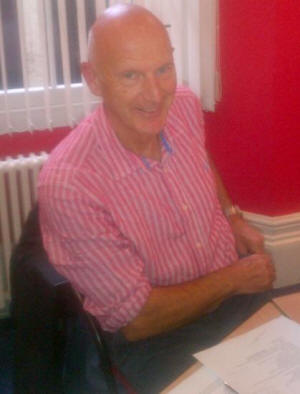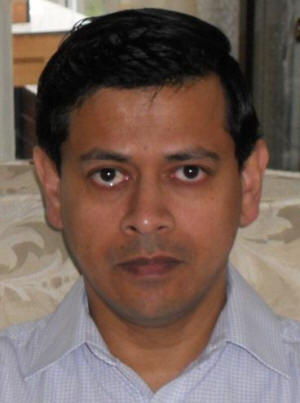Catholic Medical Quarterly Volume 63(2) May 2013
Debate
On losing a member….!
Dr James Flood
 It
was a simple enough call. As Branch President I was sounding out
a Member ( whom I shall call Fred) to see if he would stand for
Secretary at our AGM. Actually it proved complicated as he was
in the middle of a full blown personal crisis!
It
was a simple enough call. As Branch President I was sounding out
a Member ( whom I shall call Fred) to see if he would stand for
Secretary at our AGM. Actually it proved complicated as he was
in the middle of a full blown personal crisis!
No, he could not stand for Office. To be asked was the final straw. He had been struggling with many things that the Church teaches and which he could no longer believe in. To stand for Office would mean publically standing up for them and he felt quite unable to do that!
Wow that was a shock! I sympathised, of course, as finding our way through life can be difficult. Sleep on it I said and talk tomorrow. No joy – the following day he had made his mind up and resigned! I wished him the very best and hope he can resolve his worries.
It was unsettling. It set me thinking. How much of the Church’s teaching do I personally put on the ‘back burner’? At what point should one, like Fred, say enough is enough ?
It is common knowledge that most Catholics in the West ignore the Church’s position on contraception, for example, so this problem needs some form of an answer. Yet it is surely not the individual difficulties that are the big worry, it is the way the teaching itself is developed and applied. With a centralised authority and not a whiff of democracy the Church relies on the Pope making pronouncements for the Faithful to accept.
If you or I have a concern there seems to be no effective open system to register a problem and influence the centre. Vatican 2 held out one solution with the Bishops carrying out a greater role in decision making. This seems not to have happened in a meaningful way?
Personally I do not want to be a theologian – I am happy being a medic! It would help me however if there was an open channel for ideas up from the Laity and the Clergy to the Bishops. Who in turn could influence the centre. To proclaim the Gospel the Church needs to treat people as adults, encourage genuine debate and share uncertainty.
So what do you think, dear Reader? The CMA in its constitution seeks to support and advise the Bishops but do we encourage genuine debate?
I shall look forward to hearing ideas
James Flood, Treasurer of the CMA
Invited comment 1
Adrian Treloar
 Dr Flood has reflected upon a key issue that challenges many
who would serve the Church. None of us understand the whole of
our faith, (which is too great to comprehend) and all of us see
ourselves as imperfect sinners. And, in fact we will all, at
times have doubts about some aspects of our faith and the
teaching of our Church. For many, seeing great wisdom and
charity in the Churches teaching in areas which we understand,
it is enough to trust the wisdom of that Church in the areas
where we struggle to understand.
Dr Flood has reflected upon a key issue that challenges many
who would serve the Church. None of us understand the whole of
our faith, (which is too great to comprehend) and all of us see
ourselves as imperfect sinners. And, in fact we will all, at
times have doubts about some aspects of our faith and the
teaching of our Church. For many, seeing great wisdom and
charity in the Churches teaching in areas which we understand,
it is enough to trust the wisdom of that Church in the areas
where we struggle to understand.
But there are times when we may feel especially challenged. I
remember well becoming President of the Catholic Society at
University. Simply being that role meant, to me, that I was
somehow officially “Catholic”. That felt awkward and I wondered
how I could balance the expression of my views and the reality
of my sinfullness alongside those of the Church. Was I a voice
of doctrine, or was I still ”free”? For me it was made far
easier because I had already been able to see the wisdom of the
Church’s teaching on medical ethics (including contraception)
and so having seen that wisdom in one of the most contentious
areas, I could then accept wisdom in other areas where I was far
less expert.
But it is true. If by standing for Office we
become required to stand up for things that we do not believe,
there is real discomfort. Even thinking that one had an
“official” role was hard for me as a medical student. But in
fact it has all been ok. The Church’s teaching in medical ethics
is grounded in natural Law and not theology. So arguing for it
in the work place and elsewhere needs good information,
reflection, debate and knowledge. And a little trust. I saw, as
a GP that contraception was associated with devastating
breakdowns of family life, and that across the world, the
divorce rate rises with the provision of contraception. And I
saw a tiny child, beautiful and dead in a metal dish, left alone
in a clinical room for disposal.
Arguments for abortion could never be the same after I saw that beautiful baby abandoned in its metal dish.
It is great grace to be given the ability to see that the Church is right in these matters.
Perhaps we can try and help those who have not been given that grace, although we must not criticise and must try to do all we can to relieve the worries of those who are challenged in the way. Although I think the church is right in what it says, I have great sympathy for the member whom you lost. And in fact, just as Vatican II suggested, we also need to help the Bishops etc with our expertise.
Invited comment 2
Pravin Thevasathan
 Dr Flood has made a salient point. If all those who are
currently using contraception were to walk away, the Church
would look ridiculously small. Much the same could be said of
those who lie or cheat or gossip or get angry. The Father, being
the Good Shepherd that He is, loved the sheep that stayed. But
He delighted in looking for those that strayed. Indeed He could
not rest until finding them. He loved the elder son who stayed.
But when the prodigal son returned, He just had to rush out and
embrace him. For He had been waiting and waiting for his return.
And then what a wonderful feast there was!
Dr Flood has made a salient point. If all those who are
currently using contraception were to walk away, the Church
would look ridiculously small. Much the same could be said of
those who lie or cheat or gossip or get angry. The Father, being
the Good Shepherd that He is, loved the sheep that stayed. But
He delighted in looking for those that strayed. Indeed He could
not rest until finding them. He loved the elder son who stayed.
But when the prodigal son returned, He just had to rush out and
embrace him. For He had been waiting and waiting for his return.
And then what a wonderful feast there was!
From this we surely learn that the Church is not there for a small band of elite adventurers who travel light and cross the line utterly exhausted. The Church is more like a hospital in a war zone where the walking wounded are tended to with great care and where the dead on arrivals are miraculously brought back to life.
There is indeed room for debate in the Church. On many points. Peter and Paul did not see eye to eye all of the time. And yet, when Moses came down that mountain, he brought with him ten commandments and not ten choices. Were he to have set himself up as negotiator between the awesome presence of God and those down below who had returned to worship of the golden calf, he would have spent the rest of his life going up and down that mountain till he died of exhaustion. He would never have glimpsed the promised land.
